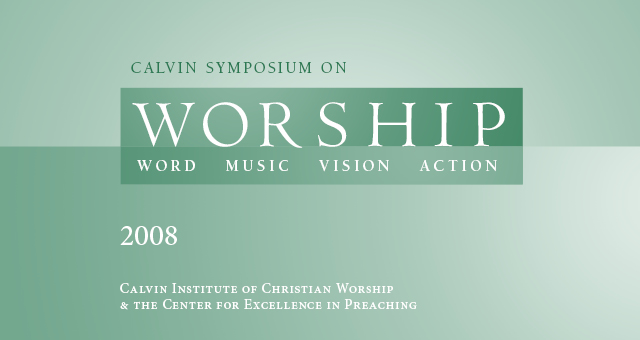Loading...
Session Description
A fantasy paraphrased, with apologies to Acts chapter 2: "So then those who received his word were baptized and there were added that day about three thousand souls and they were continually devoting themselves to one of the four electives offered: the apostles' teaching, fellowship, the breaking of bread, or prayer. And half of those who believed were together gathering in the temple court at the hour of prayer for traditional worship. And the believers rejoiced in the way things had always been done and the general sobriety of the proceedings. And the other half of those who believed were breaking bread from house to house, engaging in new, exciting, and culturally relevant forms of worship with an upbeat heart. And they all praised God in the form most comfortable to them, and they had favor with some of the people. But others wondered what they truly had in common, since they were divided in what should have been their central unifying activity."
Conference Title
2008 Calvin Symposium on Worship
Event Date
1-25-2008
Event Type
Workshop/Seminar
Type (recording/text)
Recording
Subject Area
Worship
Topic
Contemporary Worship
Keywords:
blended worship, traditional worship, contemporary worship
Upload Date
January 2008
Recommended Citation
Man, Ron, "Blended Worship: Good for the Body" (2008). Symposium on Worship Archive. 58.
https://digitalcommons.calvin.edu/uni-cicw-symposium/2008/allitems/58
Blended Worship: Good for the Body
A fantasy paraphrased, with apologies to Acts chapter 2: "So then those who received his word were baptized and there were added that day about three thousand souls and they were continually devoting themselves to one of the four electives offered: the apostles' teaching, fellowship, the breaking of bread, or prayer. And half of those who believed were together gathering in the temple court at the hour of prayer for traditional worship. And the believers rejoiced in the way things had always been done and the general sobriety of the proceedings. And the other half of those who believed were breaking bread from house to house, engaging in new, exciting, and culturally relevant forms of worship with an upbeat heart. And they all praised God in the form most comfortable to them, and they had favor with some of the people. But others wondered what they truly had in common, since they were divided in what should have been their central unifying activity."



